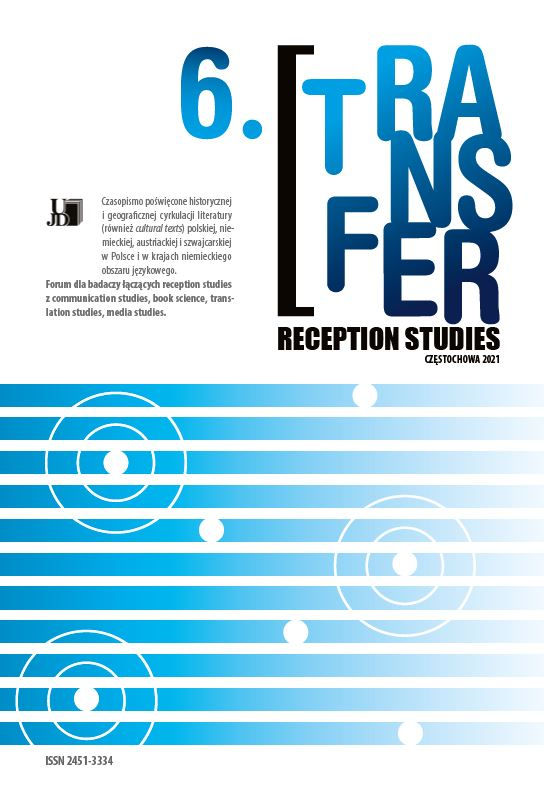The Words ‘Laughter’ and ‘Laugh’ in a selection of The English and Scottish Popular Ballads
The Words ‘Laughter’ and ‘Laugh’ in a selection of The English and Scottish Popular Ballads
Author(s): Andrew C. ROUSESubject(s): Language and Literature Studies
Published by: Uniwersytet Jana Długosza w Częstochowie
Keywords: English Popular Ballads; Scottish Popular Ballads; merry laughter; mirthless laughter
Summary/Abstract: This paper wittily addresses the theme of laughing and laughter in eight ballads selected from Volume 1 of Gutenberg's three volume collection of English and Scottish Popular Ballads, including Lady Isabel and the Elf-Knight, The Cruel Brothers, The Boy and the Mantle, The Laidley Worm, Clark Colven, The Broomfield Hill, King John and the Bishop and Captain Wedderburn’s Courtship, with a variety of other intertextual references. Drawing simultaneously on the two most comprehensive collections of English and Scottish Ballads: Francis James Child's and Steve Roud's, the paper demonstrates that laughter in ballads is "no laughing matter", and, indeed, the balladic laughter, no to be mistaken for (s)laughter, due to its social context of mediaeval times, prevails in various shades of negativity, as corroborated by Norbert Elias's sociological theory of laughter and Anca Parvulescu's study thereof. The paper provides a unique insight into the both merry and mirthless laughter prompted by a modern reading of English and Scottish folk ballads in today's cosmopolitan context.
Journal: Transfer. Reception studies
- Issue Year: 6/2021
- Issue No: 1
- Page Range: 65-82
- Page Count: 18
- Language: English

